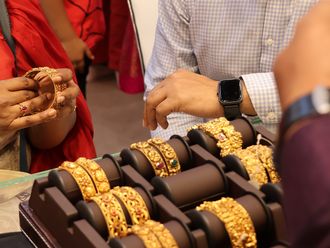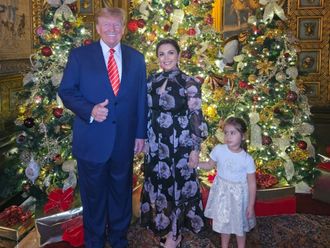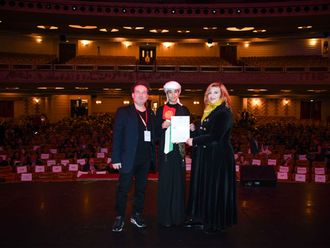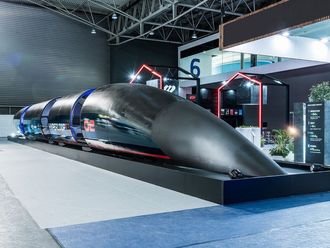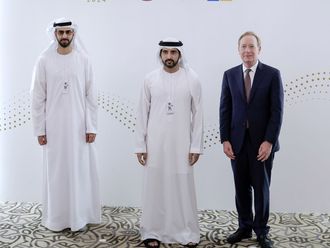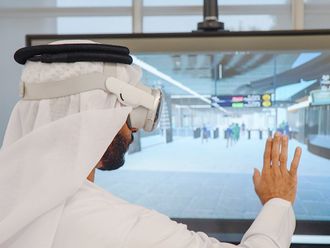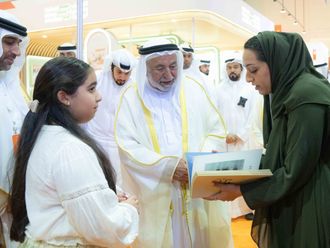Riot police and anti-U.S. protesters clashed near the gates of Malacanang, the presidential palace, even as President Gloria Arroyo, who convened the National Security Council (NSC), convinced her cabinet members to agree to joint war games against the Abu Sayyaf Group.
The police used their batons to drive away 50 protesters who held a lightning rally.
They carried placards de-nouncing the extended and expanded war games between the U.S. and Philippine troops on Basilan Island, where the Abu Sayyaf Group is hiding three hostages.
The students had no permit to hold rallies, said the police, and added that they were driven away from the palace up to Mendiola Street, the usual place for protesters. The police did not arrest the protesters.
No one was injured, said the police.
The war games mark the largest U.S. combat operations against "real, actual targets" on Philippine soil since the War from 1899-1901, University of the Philippines Prof. Roland Simbulan said in a statement.
The issue has polarised the country. Supporters have welcomed the return of American forces to this former U.S. colony to drive out the Abu Sayyaf militants, while nationalists have criticised Arroyo for allowing them to take up what they see as a combat role.
Vice President and Foreign Secretary Teofisto Guingona, who had reservations about Arroyo's decision and was rumoured to be on the verge of resigning, told reporters he respected the official position.
"No, no," he said, when asked if he would quit the cabinet.
Guingona quoted Justice Secretary Hernando Perez as saying that the president can approve the joint exercises even without the approval of the foreign secretary.
The media were banned from the second NSC meeting. Photographers were not allowed to take photographs of the meeting and reporters were not allowed to hold an early interview before the NSC meeting at Malacanang Palace's State Dining Room.
After the meeting, the NSC reached a consensus on the legality of the war games, said NSC chief Roilo Golez.
After the NSC meeting, the joint exercises will be under the Visiting Forces Agreement (VFA) instead of the Mutual Defence Treaty.
"I don't need to sign the authorising papers of the Mutual Defence Board Council of Foreign Ministers since we are on the VFA mode," explained Guingona.
"All the members of Congress who were present in the NSC meeting expressed full support for the exercise," said Golez.
He added that the six-month training exercise will be held "in the most transparent way possible".
Golez noted that Arroyo had reiterated that the American troops will not be engaged in combat. He added that the executive department is prepared to clarify other issues that might be raised on the matter in the forthcoming Congressional hearings.
At the same time, the Armed Forces of the Philippines will start a media and public information campaign in order to neutralise negative reports on the war games.
The Presidential Human Rights Committee will be activated and set up operation in Basilan in order to address fears that participants of the war games might be involved in human rights violations, Golez said that only 160 U.S. troops will be deployed in Basilan for the training exercises.
He stated that the deployment will be made in such a way that they will not be moving to the island-province in one group, or all at the same time.
Presidential Spokesman Rigoberto Tiglao said the actual training would only last for about four months.
Tiglao noted that the first month will be entirely devoted to preparations while the last month will be the phase-out stage, or the de-briefing portion, where both Philippine and American officials will check and analyse the success of the training and slowly re-deploy their personnel.
Golez explained that the exercise will continue even if the Abu Sayyaf hostages were rescued by the military before the start of the exercise next month.
"The exercise will continue because the objective is to train the Armed Forces of the Philippines."
Meanwhile, American troops will not be deployed against the Moro Islamic Liberation Front (MILF) and the communist New People's Army, said peace negotiator Eduardo Ermita.
Ermita also dashed fears that the presence of the U.S. troops could derail the ongoing peace negotiations between the government and the two rebel groups, asserting that the troops "will not go out" from their training camps.
Protesters, police clash during rally
Riot police and anti-U.S. protesters clashed near the gates of Malacanang, the presidential palace, even as President Gloria Arroyo, who convened the National Security Council (NSC), convinced her cabinet members to agree to joint war games against the Abu Sayyaf Group.


